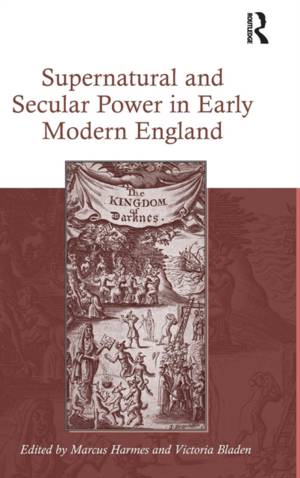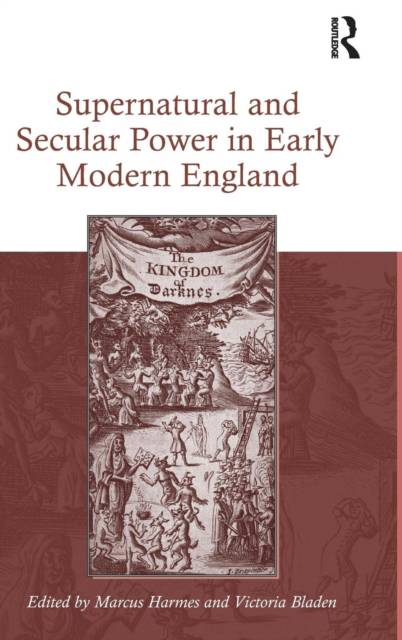
- Retrait gratuit dans votre magasin Club
- 7.000.000 titres dans notre catalogue
- Payer en toute sécurité
- Toujours un magasin près de chez vous
- Retrait gratuit dans votre magasin Club
- 7.000.0000 titres dans notre catalogue
- Payer en toute sécurité
- Toujours un magasin près de chez vous
Supernatural and Secular Power in Early Modern England
Marcus Harmes, Victoria Bladen
Livre relié | Anglais
274,95 €
+ 549 points
Description
For the people of early modern England, the dividing line between the natural and supernatural worlds was both negotiable and porous - particularly when it came to issues of authority. Without a precise separation between 'science' and 'magic' the realm of the supernatural was a contested one, that could be used both to bolster and challenge various forms of authority and the exercise of power in early modern England. In order to better understand these issues, this volume addresses a range of questions regarding the ways in which ideas, beliefs and constructions of the supernatural threatened and conflicted with authority, as well as how the power of the supernatural could be used by authorities (monarchical, religious, legal or familial) to reinforce established social norms. Drawing upon a range of historical, literary and dramatic texts the collection reveals intersecting early modern anxieties in relation to the supernatural, issues of control and the exercise of power at different levels of society, from the upper echelons of power at court to local and domestic spaces, and in a range of publication contexts - manuscript sources, printed prose texts and the early modern stage. Divided into three sections - 'Magic at Court', 'Performance, Text and Language' and 'Witchcraft, the Devil and the Body' - the volume offers a broad cultural approach to the subject that reflects current research by a range of early modern scholars from the disciplines of history and literature. By bringing scholars into an interdisciplinary dialogue, the case studies presented here generate fresh insights within and between disciplines and different methodologies and approaches, which are mutually illuminating.
Spécifications
Parties prenantes
- Auteur(s) :
- Editeur:
Contenu
- Nombre de pages :
- 250
- Langue:
- Anglais
Caractéristiques
- EAN:
- 9781472429407
- Date de parution :
- 18-03-16
- Format:
- Livre relié
- Format numérique:
- Genaaid
- Dimensions :
- 156 mm x 234 mm
- Poids :
- 530 g

Les avis
Nous publions uniquement les avis qui respectent les conditions requises. Consultez nos conditions pour les avis.






